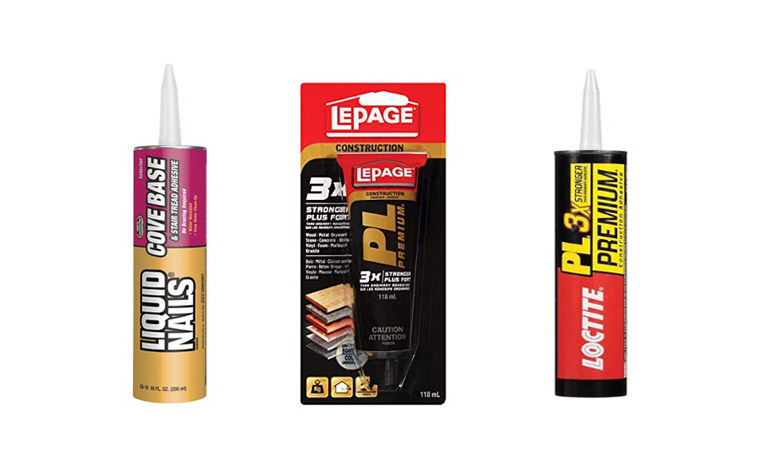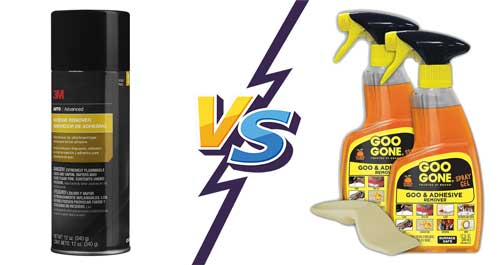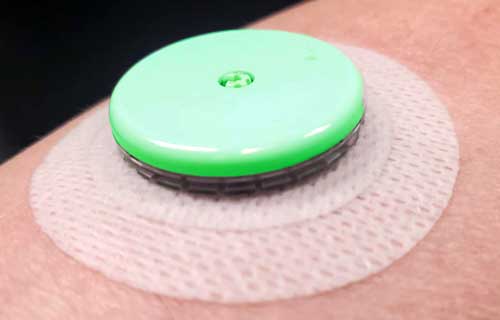3 Best Adhesive For Stair Treads And Risers: Strong & Secure Installation
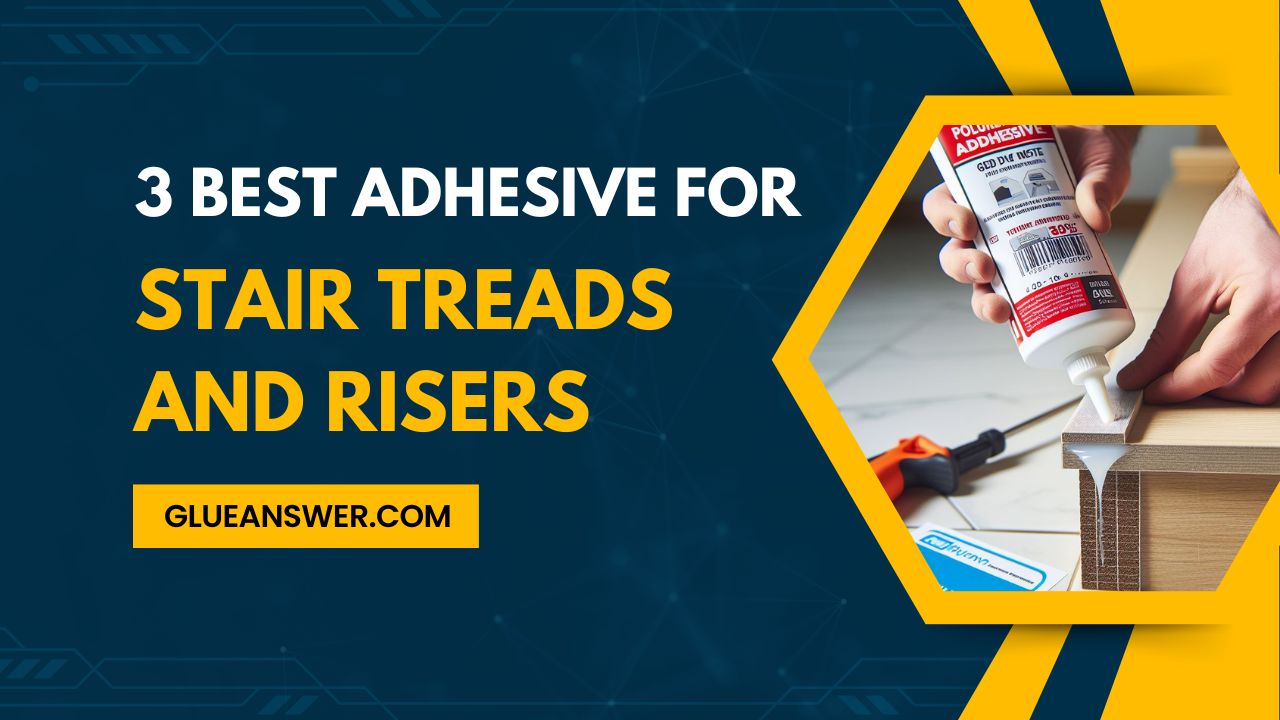
Selecting the best adhesive for stair treads and risers is crucial for a safe and durable staircase. The wrong adhesive can lead to future issues like squeaks, separation, or even safety hazards. This guide will explore various adhesive options, highlighting their strengths, weaknesses, and suitability for different materials and situations.
We’ll discuss factors like moisture resistance, flexibility, and ease of use, empowering you to choose the best adhesive for your specific stair tread and riser installation.
Transform your staircase into a masterpiece with the adhesive that bonds safety with sophistication.
3 Best Adhesive For Stair Treads And Risers in 2024
Here is our top pick for your stair treads and risers:
| Product | Gorilla Max Strength Clear Construction Adhesive | Loctite PL Polyurethane Construction Adhesive | Elmer’s E1321 Glue Multi-Purpose Liquid Glue |
| Features | |||
| Strongest Formula | Yes, double the strength of Heavy Duty Adhesive | Up to three times stronger than ordinary adhesives | Versatile bond to various materials |
| Clear Finish | Yes, dries invisible | Paintable after curing | Dries completely clear within 24 hours |
| Waterproof | Yes, bonds securely even underwater | Water-resistant | Not specified |
| Versatile | Adheres to various materials | Ideal for a wide variety of applications | Bonds to a variety of materials |
| Repositionable | Yes, allows for adjustments before final bond forms | Not specified | Not specified |
| Gap Filling | Yes, fills small gaps and uneven surfaces | Not specified | Not specified |
| Paintable | Yes, can be painted after curing | Can be painted after curing | Dries completely clear within 24 hours |
| Price | Check Price | Check Price | Check Price |
1. Gorilla Max Strength Clear Construction Adhesive
This is Gorilla’s strongest construction adhesive, offering a crystal-clear, non-foaming formula for various indoor and outdoor projects. It claims to be twice as strong as their Heavy Duty Construction Adhesive Ultimate.
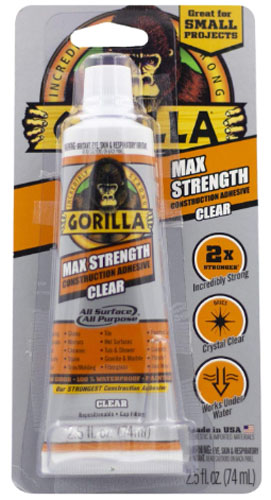
Features
- Strongest formula: Boasts double the strength of Gorilla’s Heavy Duty Construction Adhesive Ultimate.
- Crystal clear: Dries invisible, making it ideal for applications where aesthetics matter.
- Waterproof: Bonds securely even underwater and withstands various weather conditions.
- Versatile: Adheres to a wide range of materials, including subfloor, mirrors, trim, drywall, and more.
- Repositionable: Allows for adjustments before the final bond forms.
- Gap filling: Fills small gaps and uneven surfaces for a strong and seamless connection.
- Paintable: Can be painted after curing for a finished look.
Pros
- Extremely strong bond
- Clear finish for discreet use
- Works in various environments, including underwater and outdoors
- Versatile for numerous applications
- Allows for adjustments before final setting
- Fills gaps for a smooth finish
- Can be painted for a customized look
- Easy to use
Cons
- May require gloves due to potential skin irritation
- Not suitable for all materials; always check compatibility before use
2. Loctite PL Polyurethane Construction Adhesive
Loctite PL Premium Polyurethane Construction Adhesive is a one-component, moisture-curing adhesive that is perfect for a wide variety of interior and exterior projects. It is known for its versatility, strength, and all-weather performance.

Features
- All-purpose: Bonds to a wide variety of materials, including wood, concrete, metal, masonry, and most plastics.
- Strong: Up to three times stronger than ordinary construction adhesives.
- Versatile: Ideal for a wide variety of applications, including subfloor installations, cabinetry, and trim work.
- Water-resistant: Can be used in both wet and dry conditions. Ideal for use in cold weather conditions.
- Paintable: Can be painted after it cures.
- Low in VOCs: Meets stringent air quality standards. Sets in 30 minutes and fully cures in 24 hours.
Pros
- Versatile and can be used for a wide variety of projects.
- Strong and durable bonds.
- Can be used in both interior and exterior applications.
- Water-resistant and paintable.
- Low in VOCs.
- Sets quickly and cures fully in 24 hours.
Cons:
- Can be messy to apply.
3. Elmer’s E1321 Glue Multi-Purpose Liquid Glue
Elmer’s E1321 Glue-All is a versatile, white, polyvinyl acetate (PVA) glue commonly known as white glue. It comes in a 16-ounce bottle and is known for its strong bond and quick drying time.
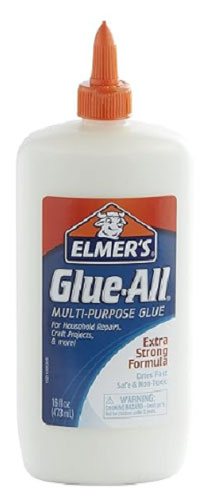
Features
- Bonds to a variety of materials: paper, fabric, wood, ceramics, leather, and more.
- Safe and non-toxic: It is formulated to be safe for children and conforms to ASTM D 4236, which is a standard specification for labeling art materials as non-toxic.
- Quick drying: Sets in minutes and dries completely clear within 24 hours.
- Washable: Cleans up easily with soap and water.
- Great for various applications: household repairs, crafting, school projects, and even creating slime.
Pros
- Versatile: Can be used on a wide range of materials, making it a one-stop glue for many projects.
- Safe for children: Ideal for school projects and crafting activities.
- Affordable: Generally less expensive compared to other specialty glues.
- Easy to use: Applies smoothly and dries clear, leaving minimal mess.
- Washable: Easy cleanup with soap and water.
Cons
- Not recommended for use on non-porous surfaces such as plastics, metal, or glass.
How Much Adhesive For Stair Treads?
The amount of adhesive for stair treads depends on tread size, but generally, use 1/2 to 3/4 of a tube per tread and riser, with more needed for longer treads.
What Is The Best Adhesive To Glue Down Stair Treads?
Gorilla Max Strength adhesive is a popular choice for gluing down stair treads. Its strong bond and durability make it suitable for securing treads, providing reliable adhesion for a secure and long-lasting installation.
What Is The Strongest Wood Glue For Stairs?
Polyvinyl Acetate (PVA) glue is commonly used for wood projects, including stairs. It forms a strong bond and is suitable for woodworking. Brands like Titebond and Elmer’s offer reliable PVA wood glues.
How Do You Secure Stair Treads And Risers?
Securing stair treads and risers typically involves a combination of construction adhesive and nails. The adhesive creates a strong bond, while nails provide additional stability and prevent movement.
What Is The Best Way To Attach Stair Treads?
The best way to attach stair treads depends on the materials and desired aesthetics. Generally, a combination of construction adhesive and mechanical fasteners like nails or screws is recommended for a strong and secure installation.
What Glue Is Stronger Than Wood Glue?
Several glues offer superior strength compared to traditional wood glue, especially for specific applications:
- Epoxy: Known for its exceptional strength and versatility, bonding various materials like wood, metal, and concrete.
- Polyurethane glue: Creates a strong, flexible bond, ideal for wood exposed to moisture or stress.
- Construction adhesive: Offers superior initial bond strength and works well on non-porous surfaces and various materials.
What Material Should I Use For Stair Treads?
Choosing the right material for your stair treads depends on several factors. Here’s a quick comparison of some common stair tread materials:
| Material | Pros | Cons |
| Hardwood | Beautiful, durable, classic look | Expensive, prone to scratches, requires maintenance |
| Stone | Luxurious, highly durable, slip-resistant options | Very expensive, heavy, can be cold to the touch |
| Laminate | Affordable, variety of styles, easy to clean | Less durable than natural materials, can look cheap |
| Vinyl | Affordable, water-resistant, variety of styles | Can feel soft underfoot, may not be as durable as other options |
Read More Wood Glue Vs Elmers: Strength comparison, Pros Cons and Various Applications
What Is The Difference Between Wood Glue And Adhesive?
Wood glue, a type of adhesive, is specifically formulated for bonding wood. It often contains elements that penetrate wood fibers for a strong, long-lasting hold. While other adhesives can work on wood, they might not be as effective or lack features like wood glue’s drying time or ease of use.
What Wood Is Best For Stair Treads?
Choosing the “best” wood depends on your priorities.
- For durability and timeless style: Oak (red or white) offers a strong balance.
- For maximum strength: Hickory is the toughest wood option.
- For lighter color and affordability: Maple is a versatile choice.
Can You Use Construction Adhesive For Stair Treads?
While construction adhesive can be used in conjunction with mechanical fasteners for stair treads, it’s not recommended as the sole method. This is due to potential wood movement and lack of water resistance in some adhesives.
What Is The Standard Stair Tread And Riser?
Standard tread depth is minimum 11 inches and riser height is maximum 7 ¾ inches for residential stairs. This ensures comfortable and safe use following building codes.
How Do You Glue Stair Treads To Concrete?
Here is a general guide on how to glue stair treads to concrete:
Step 1: Prepare the Concrete Surface
Clean the concrete surface thoroughly to remove any dirt, dust, or debris. Use a concrete cleaner and follow the manufacturer’s instructions.
Step 2: Fit and Align the Stair Treads
Ensure that the stair treads fit properly on the steps. Check for any overhang or gaps. Use a level to make sure the treads are level and even.
Step 3: Apply Adhesive
Apply a continuous and even bead of adhesive along the back of the stair tread. If using a notched trowel, spread the adhesive evenly.
Step 4: Place the Stair Tread
Press the stair tread firmly onto the concrete, ensuring complete contact with the adhesive.
Step 5: Check Alignment
Double-check the alignment and levelness of the stair tread. Make any adjustments before the adhesive sets.
Step 6: Repeat the Process
Repeat the process for each stair tread, working one tread at a time.
Step 7: Allow for Curing
Allow the adhesive to cure completely before subjecting the stairs to heavy use.
How Do You Remove Adhesive From Stairs?
Here are some common methods, but always test in an inconspicuous area first to ensure it doesn’t damage the stair material:
1. For Water-Based Adhesives (Like White Glue)
- Warm water and soap: Apply warm soapy water to the adhesive and allow it to sit for a while. Scrape gently with a plastic putty knife to loosen the residue.
- Vinegar solution: Mix equal parts white vinegar and water, apply to the adhesive, and let it sit. Scrub gently with a soft brush or cloth.
2. For Solvent-Based Adhesives
- Mineral spirits: Apply a small amount to a rag and dab the adhesive, working in a well-ventilated area. Be cautious, as mineral spirits can damage some finishes.
- Acetone (for tough adhesives): Use with extreme caution due to its strong fumes and potential damage to finishes. Apply a minimal amount to a rag in a well-ventilated area, only as a last resort.
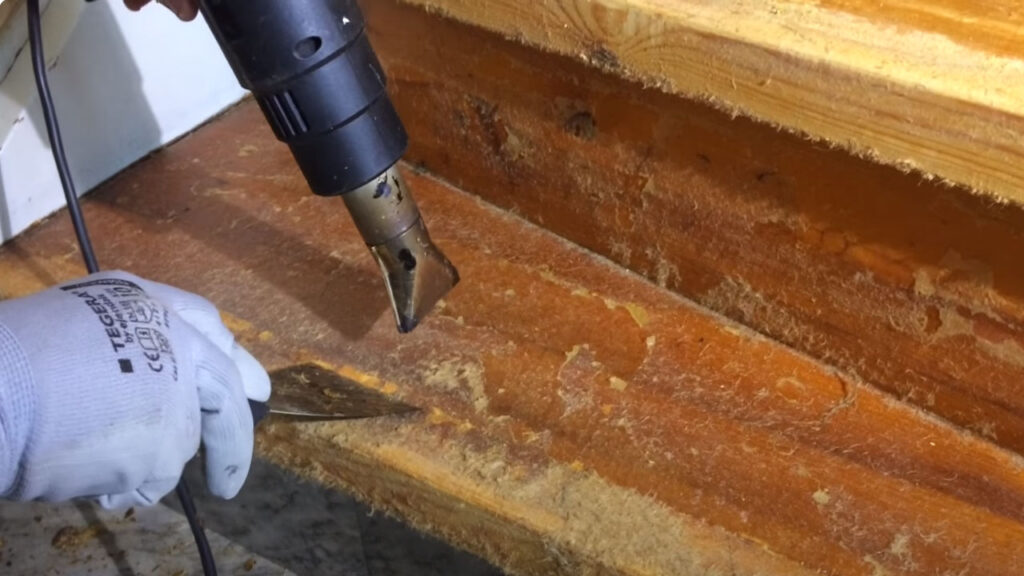
Vinyl Stair Tread Adhesive
Secure your vinyl stair treads with a construction adhesive designed for bonding vinyl to concrete or other subfloors. These robust adhesives ensure long-lasting, secure bonds that withstand daily wear and tear.
Key features to consider
Bonds vinyl to various subfloors.
- Strong and durable bonds.
- Flexible for movement accommodation.
- Water-resistant to prevent moisture damage.
Rubber Stair Tread Adhesive
For securing rubber stair treads, choose a solvent-free, acrylic construction adhesive specifically formulated for rubber and concrete bonding. These adhesives offer exceptional adhesion, are safe for indoor use, and remain flexible to accommodate movement on stairs.
Stair Tread Adhesive Tape
Stair tread adhesive tape can be a convenient option for securing vinyl or carpet treads to stairs. However, it’s generally not recommended for primary adhesion due to limitations in:
- Bonding strength: May not withstand heavy use or long-term wear.
- Uneven surfaces: Gaps can form, creating tripping hazards.
- Moisture concerns: Not always water-resistant, potentially weakening the bond.
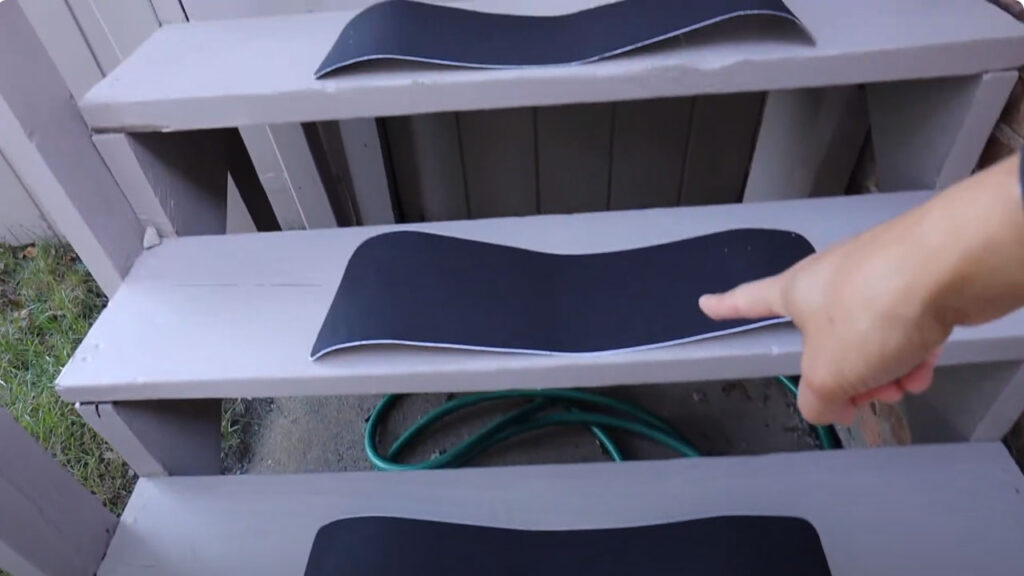
Read Also Wood Glue Vs Construction Adhesive: Find the Strong Bonds
How Much Adhesive For Stair Treads?
The amount of adhesive needed for stair treads depends on the tread size and manufacturer recommendations. Typically, for treads up to 48 inches, you’ll need 1/2 to 3/4 of a tube per tread and riser. Longer treads might require more.
Buying Guide for stair treads and risers
Here’s a comprehensive buying guide to help you choose the best adhesive for your stair project:
1. Compatibility
Ensure that the adhesive is compatible with the materials of your stair treads and risers. It should work well with wood, laminate, or other materials commonly used in stairs.
2. Water Resistance
If your stairs are likely to be exposed to moisture or high humidity, choose an adhesive that is water-resistant or waterproof. This helps prevent the adhesive from deteriorating over time.
3. Ease of Application
Look for adhesives that are easy to apply, whether they come in a tube, can, or cartridge. Some adhesives may require a caulking gun for application.
4. Drying Time
Consider the drying time of the adhesive. Some adhesives set quickly, while others may take longer. Choose one that allows you enough time to adjust the treads and risers during installation.
5. Low VOC
Opt for adhesives with low or zero volatile organic compounds (VOC) to minimize harmful emissions and ensure better indoor air quality.
6. Temperature Resistance
Check if the adhesive is suitable for the temperature conditions in your area. Some adhesives may be more resilient to extreme temperatures than others.
FAQs
Are all adhesives suitable for stair treads?
No, not all adhesives are suitable for stair treads. Choose construction adhesives specifically designed for bonding your tread material (wood, vinyl, etc.) to the subfloor (concrete, plywood, etc.).
Do stair treads need adhesive?
While mechanical fasteners like screws are crucial for securing stair treads, adhesive can be a valuable addition. It enhances stability, fills minor gaps, and works with fasteners for a long-lasting installation, especially for wood or vinyl treads.
What adhesive do I use for cap a tread?
Cap-A-Tread products typically recommend using their own fully bonded adhesive, specifically formulated for their stair treads. This adhesive ensures a strong, long-lasting bond between the cap and the subfloor.
Is wood glue strong enough for stairs?
No, regular wood glue is not strong enough for stairs. It lacks the necessary long-term durability and flexibility to withstand the constant pressure and movement of staircases.
What wood glue do professionals use?
While there’s no single “professional” wood glue, popular choices among professionals include polyurethanes and aliphatic resins. They offer superior strength, water resistance, and gap-filling capabilities compared to standard PVA glues.
Are stair treads nailed or glued?
Stair treads are typically both nailed and glued for optimal security and stability. While glue provides a strong initial bond, nails add mechanical fastening, ensuring the treads can withstand everyday wear and tear.
What is the best rated wood glue?
Determining the “absolute best” wood glue depends on specific needs, but Titebond Ultimate Wood Glue consistently ranks highly for overall strength, water resistance, and versatility for various wood projects.
Can I use general-purpose glue for attaching stair treads?
No, general-purpose glue is not recommended for attaching stair treads. It lacks the strength, durability, and flexibility needed to withstand the constant pressure and movement on stairs.
Conclusion
Selecting the best adhesive for stair treads and risers is pivotal for ensuring a secure and durable installation. The right adhesive not only enhances safety but also contributes to the longevity of your staircase. Therefore, investing in a high-quality adhesive is the key to a reliable and long-lasting staircase solution.

